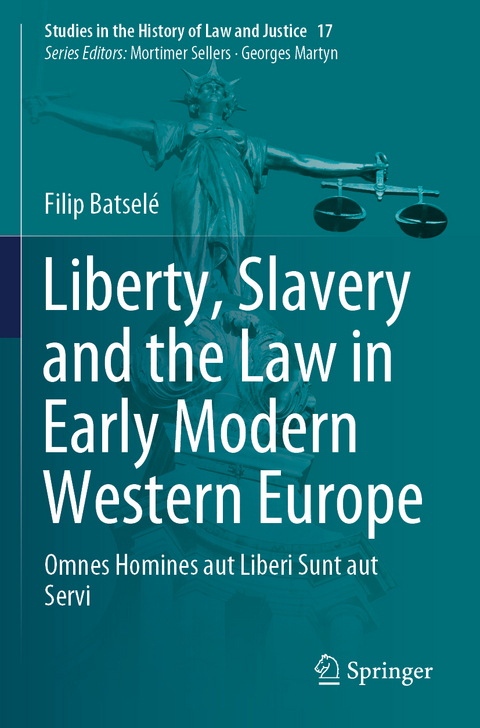
Liberty, Slavery and the Law in Early Modern Western Europe
Springer International Publishing (Verlag)
978-3-030-36857-9 (ISBN)
lt;b>Filip Batselé is a law graduate with degrees from Ghent University (LL.B., LL.M.) and The Fletcher School of Law and Diplomacy at Tufts University (LL.M.). He currently works at Ghent University's Institute for Legal History, where he is conducting PhD research on the history of international law. He is also affiliated with the research group "Contextual Research in Law" (CORE) at the Free University of Brussels.
Introduction.- The Legal and Institutional Framework of Slavery.- The Development of a Legal Free Soil Principle (?), Ca. 1500-1650.- Free Soil under Pressure - The Metropolitan Legal Order and the Atlantic Slave Trade, Ca. 1650-1800.- Comparative Free Soil - Similarities and Differences.- .General Conclusion - The Soil of Europe: Free or Unfree?
| Erscheinungsdatum | 06.02.2021 |
|---|---|
| Reihe/Serie | Studies in the History of Law and Justice |
| Zusatzinfo | XIV, 223 p. |
| Verlagsort | Cham |
| Sprache | englisch |
| Maße | 155 x 235 mm |
| Gewicht | 373 g |
| Themenwelt | Geisteswissenschaften ► Geschichte ► Regional- / Ländergeschichte |
| Geschichte ► Teilgebiete der Geschichte ► Militärgeschichte | |
| Recht / Steuern ► Allgemeines / Lexika | |
| Recht / Steuern ► Rechtsgeschichte | |
| Schlagworte | colonial slavery • Freedom Principle • Free Soil Principle • Slavery 18th Century • Slavery and Freedom • Slavery and Law • Slavery in England • Slavery in France • Slavery in the Netherlands • Somerset's Case • Somerset’s Case |
| ISBN-10 | 3-030-36857-2 / 3030368572 |
| ISBN-13 | 978-3-030-36857-9 / 9783030368579 |
| Zustand | Neuware |
| Haben Sie eine Frage zum Produkt? |
aus dem Bereich


